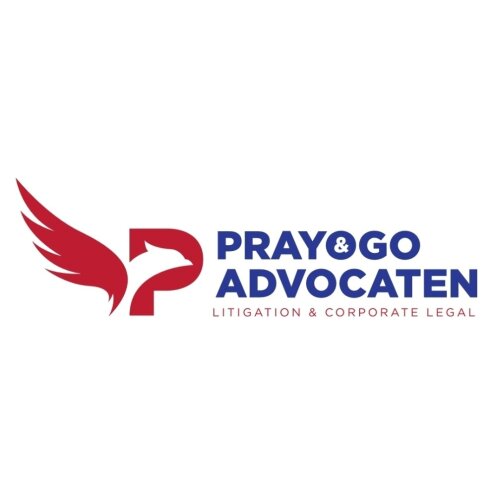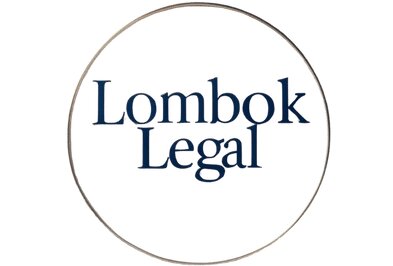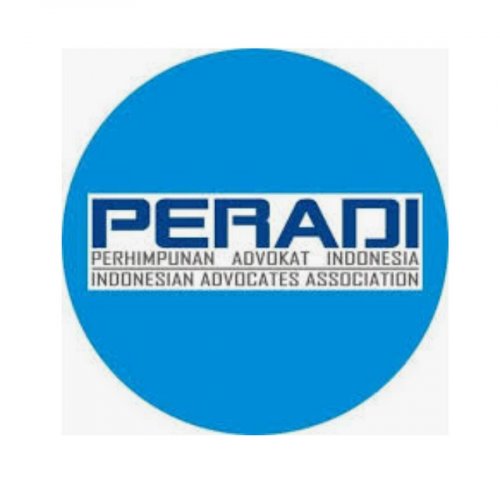Best Sustainable Finance Lawyers in Indonesia
Share your needs with us, get contacted by law firms.
Free. Takes 2 min.
Or refine your search by selecting a city:
List of the best lawyers in Indonesia
About Sustainable Finance Law in Indonesia
Sustainable Finance in Indonesia refers to an approach that integrates environmental, social, and governance (ESG) considerations into financial services. The objective is to support sustainable development and ensure that investments and financial activities do not harm the environment or society. This concept is formalized through regulations enacted by the Financial Services Authority (OJK) and other relevant government agencies. Over recent years, Indonesia has taken significant steps to promote green investment, responsible lending, and mandatory disclosures related to sustainability. These measures aim to align national growth with the principles of climate resilience, social inclusion, and ethical business conduct.
Why You May Need a Lawyer
Dealing with Sustainable Finance in Indonesia can be complex due to evolving regulations and the multidisciplinary nature of the field. You may need a lawyer in situations such as:
- Setting up green bonds or sustainable investment funds
- Ensuring compliance with OJK regulations and ESG reporting requirements
- Advising on corporate governance related to sustainability practices
- Structuring and negotiating contracts for renewable energy projects
- Resolving disputes related to sustainability claims, investment, or lending practices
- Interpreting tax incentives and green finance benefits
- Participating in international or cross-border sustainable finance transactions
In these scenarios, a legal professional can help ensure that your projects or investments align with applicable laws, minimize risks, and take advantage of government incentives.
Local Laws Overview
Indonesia's legal landscape for Sustainable Finance has advanced notably, especially with the issuance of key regulations:
- OJK Regulation No. 51/POJK.03/2017 on Implementation of Sustainable Finance for Financial Service Institutions, Issuers, and Public Companies - This regulation requires affected institutions to implement Sustainable Finance principles and regularly report on their sustainability activities.
- Roadmap for Sustainable Finance (2015 to 2019, followed by subsequent phases) by OJK - Outlines frameworks, targets, and strategic priorities for building a sustainable financial ecosystem.
- Corporate Social and Environmental Responsibility (CSR) requirements as mandated by Indonesia’s Company Law and sector-specific rules.
- Green Bond and Green Sukuk Initiatives - Regulations govern the issuance of environmentally focused debt instruments, with eligibility criteria and reporting requirements designed to ensure transparency and impact.
- Tax Incentives and Benefits - Special provisions apply for investments focused on renewable energy and sustainable development.
These laws and regulations aim to encourage financial market participants to incorporate sustainability factors into their operations, decision-making, and disclosures.
Frequently Asked Questions
What is Sustainable Finance and why is it important in Indonesia?
Sustainable Finance involves integrating environmental, social, and governance (ESG) considerations into financial decision-making. It is important in Indonesia to promote responsible investment, safeguard the environment, and ensure social well-being alongside economic growth.
Are there mandatory Sustainable Finance requirements for all companies in Indonesia?
Mandatory requirements primarily apply to financial services institutions, issuers, and public companies as per OJK Regulation No. 51/POJK.03/2017. Other businesses may face sector-specific obligations or voluntarily adopt sustainability practices.
What are the main sustainability reporting obligations?
Affected companies must issue Sustainability Reports that outline their ESG-related policies, actions, and impacts. Reports should adhere to formats and timelines specified by OJK and relevant regulations.
How do green bonds work under Indonesian law?
Green bonds are debt instruments used to finance projects with positive environmental impacts. Issuers must comply with OJK's Green Bond Guidelines, ensure fund allocation follows eligible project criteria, and provide transparent reporting.
What types of projects qualify as sustainable investments?
Projects in renewable energy, wastewater management, sustainable agriculture, and other areas addressing environmental or social challenges generally qualify, as defined by OJK and relevant government ministries.
Are there tax incentives for sustainable finance activities in Indonesia?
Yes, certain green energy, infrastructure, and sustainable development projects may benefit from tax holidays, exemptions, or reductions, subject to prevailing tax and investment laws.
How is compliance monitored and enforced?
OJK and relevant regulators supervise compliance through periodic reporting, audits, and investigations. Non-compliance may result in administrative sanctions or other penalties.
Can foreign investors participate in sustainable finance projects?
Yes, foreign investors may participate, although they must adhere to foreign investment regulations and relevant sectoral requirements in Indonesia.
What risks exist for organizations failing to comply with Sustainable Finance regulations?
Risks include sanctions, reputational damage, exclusion from government support, and potential legal action from stakeholders or affected communities.
Who can help with legal aspects of Sustainable Finance in Indonesia?
Specialized law firms, sustainability consultants, and government advisory bodies can assist. For complex matters, it is advisable to engage a legal expert who regularly handles sustainable finance transactions and regulatory compliance.
Additional Resources
Indonesian authorities and organizations actively promote sustainable finance. The following resources may be useful if you need guidance or further information:
- Financial Services Authority (OJK) - Oversees regulation and implementation of sustainable finance in the financial sector
- Ministry of Finance - Administers green bond and tax incentive programs
- Indonesia Stock Exchange (IDX) - Provides sustainability-related capital market information and regulations
- National Center for Sustainability Reporting - Offers guidance and training on sustainability reporting practices
- Industry associations and non-profit organizations focused on sustainable development and responsible investment
Next Steps
If you require legal assistance in the field of Sustainable Finance in Indonesia, consider the following steps:
- Identify your specific needs, such as compliance, deal structuring, or dispute resolution
- Research and contact reputable law firms with experience in Sustainable Finance and ESG matters
- Prepare relevant documents and information about your business or project
- Schedule an initial consultation to discuss your concerns and potential solutions
- Stay updated with the latest regulations and best practices by following updates from OJK and related authorities
A proactive approach and experienced legal counsel can help you navigate Indonesia's Sustainable Finance landscape successfully while supporting your commitment to responsible investment and sustainable growth.
Lawzana helps you find the best lawyers and law firms in Indonesia through a curated and pre-screened list of qualified legal professionals. Our platform offers rankings and detailed profiles of attorneys and law firms, allowing you to compare based on practice areas, including Sustainable Finance, experience, and client feedback.
Each profile includes a description of the firm's areas of practice, client reviews, team members and partners, year of establishment, spoken languages, office locations, contact information, social media presence, and any published articles or resources. Most firms on our platform speak English and are experienced in both local and international legal matters.
Get a quote from top-rated law firms in Indonesia — quickly, securely, and without unnecessary hassle.
Disclaimer:
The information provided on this page is for general informational purposes only and does not constitute legal advice. While we strive to ensure the accuracy and relevance of the content, legal information may change over time, and interpretations of the law can vary. You should always consult with a qualified legal professional for advice specific to your situation.
We disclaim all liability for actions taken or not taken based on the content of this page. If you believe any information is incorrect or outdated, please contact us, and we will review and update it where appropriate.
Browse sustainable finance law firms by city in Indonesia
Refine your search by selecting a city.
















